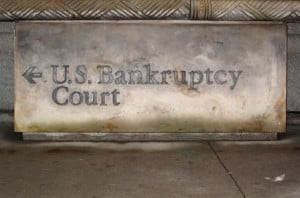
What Happens After Filing Chapter 7?
Most people who file Chapter 7 bankruptcy have little assets and qualify to have most of their unsecured debt discharged. Unsecured debt that may qualify to be wiped off or discharged includes medical bills and credit cards . Having little assets and qualifying debt can help make the process a lot easier. Keep in mind, there are specific qualifications that should be met in order to complete your bankruptcy case successfully.
In the beginning, you’ll share concerns and discuss your situation with your bankruptcy attorney who will review legal issues and solutions for your finances. You’ll present the necessary documentation to have a petition created for your case. Credit counseling is required to be completed upon filing but if you have not completed it, a legal expert can recommend an approved agency for you to begin the counseling.
When your bankruptcy petition is completed, you’ll review and sign off on the documents so they can be filed with the bankruptcy court. Take time to review these documents carefully to ensure information is true and correct. The fee to file bankruptcy may be collected at this time.
When your case is filed, your creditors are notified about the proceeding and about a month or so after they are notified, a meeting is scheduled with the creditors and Trustee. Creditors often don’t attend but you will be asked questions about your finances under oath. The Trustee then creates a report that details their findings about your situation after the meeting. Creditors have about 60 days to object although this is rare. If no objection is made, your case may conclude in getting your debts discharged.
After your case has been filed, you’ll be required to complete a financial management course in order to receive a discharge of your debts.
Contact us for a free bankruptcy consultation
What to Expect When Filing Chapter 7 Bankruptcy
When considering Chapter 7 bankruptcy , many debtors experience anxiety about the process.
Let’s take a look at the process for debtors filing Chapter 7 bankruptcy:
Step #1 – Meet with your bankruptcy attorney to discuss your financial situation.Bring a list of your creditors, bills, income records and credit report. At the meeting the bankruptcy attorney will help you determine the amount of your debts, your income and which debts you may or may not discharge during bankruptcy.
Step #2 – The debtor who decides to file bankruptcy must take a credit counseling course which can most likely be done online. This credit counseling course is a requirement for all debtors filing bankruptcy.
Step #3 – The bankruptcy attorney will file the debtor’s bankruptcy petition with the court. The petition will include all of the information you compiled and gave to your attorney; creditors names, debt amounts, income etc.
Step #4 – The debtor will attend a meeting with his/her bankruptcy attorney, the bankruptcy trustee and maybe a few of the debtor’s creditors. This is NOT a meeting where creditors will confront you or anything along those lines. They will just ask you basic questions about your ability to pay the debt.
Step #5 – The debtor must attend a financial management class where he/she will learn how to manage his/her money. Attendance at this class is required.
Step #6 – The debtor will receive a discharge of his/her debts and begin a brand new financial start.
Have Any More Questions About the Chapter 7 Bankruptcy Process?
If you have any questions regarding the chapter 7 bankruptcy process or would like to set up a free consultation, feel free to give us a call or submit your questions here.
What To Expect In A Business Chapter 7 Bankruptcy

When a business decides that they can no longer pay their debts and must file bankruptcy, the process is different than if they were an individual.
Here’s what you need to know:
- Once you decide to place your business in Chapter 7 bankruptcy, you are deciding that the business will no longer exist.
- You will need to declare all of the business’ liabilities and assets when you file the bankruptcy petition. Even though the business is being liquidated, the listing of assets and liabilities must be accurate.
- Within a day or two of filing Chapter 7 bankruptcy for your business, a bankruptcy trustee will be appointed to your case. It is the responsibility of the bankruptcy trustee to make sure creditors are repaid if possible, using the assets of the business.
- The business owner is responsible for surrendering all of the business property to the bankruptcy trustee. The property includes equipment, furniture, vehicles, inventory and receivables. The bankruptcy trustee will return appropriate property to secured lenders and liquidate other assets so that priority creditors and if possible, unsecured creditors can be repaid.
- The liquidation of a business’ assets in bankruptcy can take weeks or even months. The bankruptcy trustee is responsible for auctioning off assets which have value and distributing the proceeds to the administrative estate, priority creditor and then unsecured creditors. Even if there is not enough money to pay off creditors, the business will not receive a discharge of their debts. The business will simply no longer exist because it was liquidated in bankruptcy. However, if the owner of the business personally guaranteed debts, his personal assets may be at risk if unpaid creditors decide to pursue him for payment.
What You May Not Know about Chapter 7 Bankruptcy

Bankruptcy can sometimes be complicated but it can be even more challenging when you don’t understand the process clearly due to myths, misconceptions or false information that isn’t true. Chapter 7 bankruptcy may help you get the fresh start you’re looking for but it also helps to get accurate details to help you make an informed decision so your financial situation has a positive outcome.
Many people who complete the bankruptcy process obtain credit quicker than most realize; giving consumers an advantage in rebuilding their credit sooner. If you are married, your spouse may not need to file a bankruptcy petition especially if one spouse has an overwhelming amount of debt. Obtaining a discharge of qualifying debt is usually granted within about six months. While some may opt to file on their own, it is often not recommended due to the complexity of the process. Working with an experience bankruptcy attorney often plays an important role in making sure procedures are being followed accordingly, which greatly increases chances of getting debt discharged successfully.
Chapter 7 bankruptcy is good option for those who have limited assets. A bankruptcy trustee may utilize qualifying assets to satisfy creditors but in most cases a discharge of debt left outstanding is granted by the court. If the majority of your debt includes medical bills , credit card debt or other unsecured debt, it’s likely you will qualify. A means test is used to help determine eligibility for Chapter 7 filing which includes reviewing household income and expenses. Certain types of debt may not qualify for discharge such as child support and certain tax debts . Chapter 7 offers a wide range of exemptions that allow many who file to keep personal property.
http://www.morriscountybankruptcylawyer.com
Call for a free bankruptcy consultation
Break the Poverty and Debt Cycle with Chapter 7 Bankruptcy
Need to Apply for Chapter 7 Bankruptcy? Then You’re Not Alone
 The US Census Bureau has determined that the average income, for the past five years, for American households leveled at just over $46,000. But for millions of families across the country, they fall not just below the median income, but the poverty line altogether. Statistics indicate that almost 39 million families (or 13 to 17% of the population) live below the poverty line. Astonishingly, more than 40% of the population will be considered below the poverty line in the span of their lifetime.
The US Census Bureau has determined that the average income, for the past five years, for American households leveled at just over $46,000. But for millions of families across the country, they fall not just below the median income, but the poverty line altogether. Statistics indicate that almost 39 million families (or 13 to 17% of the population) live below the poverty line. Astonishingly, more than 40% of the population will be considered below the poverty line in the span of their lifetime.
So what does this have to do with debt and Chapter 7 bankruptcy?
Poverty is bad enough, but when you’re also suffering from too much debt, it can seem almost impossible to not only improve your credit, but your financial situation in general. If you’re living paycheck to paycheck, prioritizing paying off your debts is often an impossible choice, as your finances are obligated to paying for your necessities. Yet there is hope out there for many families who are struggling to do both at the same time.
Filing for a Chapter 7 bankruptcy is a way to give families the chance they need to start over again financially, thus relieving themselves of an enormous debt burden. Filing for a Chapter 7 bankruptcy allows you to eliminate your unsecured debts, such as credit card bills , medical bills and other loan obligations. Additionally, a Chapter 7 bankruptcy allows you to keep hold of your home and your car (up to a certain federal exemption amount), so you won’t have to sell your residence just to pay off your debts.
So how do you know if you need to file for a Chapter 7 bankruptcy?
Simple: if you’ve gathered up your debts and determined that there’s no way you’ll be able to pay off your debts in seven to ten years, then you may want to consider filing for bankruptcy.
Why the seven to ten year figure?
Simple: that’s how long a Chapter 7 bankruptcy will remain on your credit score – so if your debts last beyond that, then it’s well worth it to make an appointment with your local bankruptcy attorney. If you’ve been living off of credit cards or continually turn to payday loans just to make ends meet, then it’s time to break the cycle of poverty and too much debt. Contact a local bankruptcy attorney today to take a stand against the mountain of debt you’ve been battling for so long. After all, don’t you and your family deserve the chance to start your finances over again.
Redemption In Chapter 7 Bankruptcy
 In Chapter 7 bankruptcy a debtor may have an opportunity to redeem some personal property. Redemption is not reaffirmation; but is similar in that the debtor gets to keep secured property in bankruptcy.
In Chapter 7 bankruptcy a debtor may have an opportunity to redeem some personal property. Redemption is not reaffirmation; but is similar in that the debtor gets to keep secured property in bankruptcy.
Let’s take a closer look at redemption in Chapter 7 bankruptcy:
What Is Redemption?
Redemption is when a bankruptcy debtor pays off the secured portion of a loan so that they can not only reduce their monthly debt payments but they can also reduce the loan balance and keep the property. When a debtor redeems personal property in bankruptcy, they are NOT reaffirming the debt. They are only paying off the secured portion of the debt. For example, if a bankruptcy debtor wanted to redeem a vehicle valued at $10,000 and it had a loan of $18,000 on it, they could use redemption. Using redemption, the bankruptcy debtor could pay the lender $10,000 cash and keep the property. Because the $18,000 loan is only secured up to $10,000, the remaining $8,000 balance would be treated as unsecured debt and might be discharged depending on the details of the bankruptcy case.
What Type Of Property Can Be Redeemed?
A bankruptcy debtor can redeem personal property only. This includes cars, household appliances and anything else used by the debtor and their household. Real estate is not considered personal property so it cannot be redeemed in bankruptcy. But there are other ways to keep real estate when a mortgage is not fully secured by the property’s value. Business property is not eligible for redemption in Chapter 7 bankruptcy. For example, while a bankruptcy debtor could redeem a personal computer, they could not redeem a computer used primarily for business purposes.
How Can A Debtor Use Redemption?
A debtor can work with their bankruptcy attorney to redeem property or they can file a motion for redemption with the bankruptcy court. Some creditors are more open to redemption than others so the debtor will need to decide which route is the best one. The bankruptcy debtor will also need cash or a loan to redeem some types of property. For most debtors, coming up with thousands of dollars to redeem personal property is difficult. But if the debtor plans carefully, they can redeem their most important assets in bankruptcy without causing additional financial distress.
What Are Alternatives To Redemption?
Redemption is just one way to keep personal property; there is also reaffirmation and the voluntary surrender of property. Each bankruptcy debtor must decide if it is worth it to keep property when weighing their options. With redemption you free yourself from future debt payments if you can pay with cash, while reaffirmation obligates you to post-bankruptcy debt that might otherwise be discharged.
What Is The Process Of Chapter 7 Bankruptcy?

- After the debtor delivers all requested paperwork to his/her bankruptcy attorney, the bankruptcy petition is filed with the bankruptcy court. The bankruptcy petition is generally 45 to 50 pages long but may be shorter if we are filing an “emergency bankruptcy” which is used when you need bankruptcy fast to stop an imminent foreclosure, wage garnishment etc. Eventually all paperwork must be fully completed.
- Once the bankruptcy petition arrives, the bankruptcy trustee will review the petition. If there are errors or mistakes, the bankruptcy case could be dismissed. Errors could include failing to take the debtor’s course or misstating your income or expenses, among other things. This is why it is important to work with an experienced bankruptcy attorney for your filing.
- Once your paperwork has been processed, the bankruptcy court will send each creditor a bankruptcy notice. Remember, you must list all creditors on your petition. Everyone must be included in the bankruptcy. All creditors will be notified of your bankruptcy filing.
- After about 30 days, a “meeting of creditors” appointment is made. What this means is that you will meet with your creditors, the bankruptcy trustee and bankruptcy attorney to discuss your case. Don’t worry, it is not an interrogation.
- If you have no assets that can be liquidated to repay creditors and no creditor has challenged your bankruptcy, the bankruptcy trustee will discharge all dischargeable debts and your case will be closed/discharged.
If you have no assets and no creditors contest your bankruptcy, your bankruptcy case will probably be discharged in about 60 days. On the other hand, if you have assets and/or a creditor contests the case, the bankruptcy case could last for over 90 days.
Call for a free bankruptcy consultation today.
The Trustee Review Process In Chapter 7 Bankruptcy

Chapter 7 bankruptcy cases are overseen by a trustee who is responsible for examining and liquidating assets to pay creditors. It’s important for the bankruptcy debtor to understand exactly how this process works so that they can do the thing that will make the process go smoother.
Let’s take a closer look at the bankruptcy trustee review process:
Petition Review
The bankruptcy trustee will review the bankruptcy petition. They will make sure that it is done correctly and look at the assets and liabilities listed. It’s up to the debtor to make sure they have listed all of their assets and debts on their bankruptcy petition and that the forms are correct. If there are any obvious errors, the case may be dismissed.
Meeting Of Creditors
At the meeting of creditors the bankruptcy trustee will once again examine the bankruptcy petition and confirm with information with the debtor. If the debtor has made a mistake, forgotten to include information or needs to make a change, they can mention it at this meeting. However, it may be better to mention changes and errors to the bankruptcy attorney before attending the meeting of creditors so that changes can be made quickly. It’s important to note that the meeting of creditors is usually a quick process, only taking a few minutes.
Examination Of Exemptions
The bankruptcy trustee will examine the assets of the case and determine the amount of non-exempt property. If there is no non-exempt property in the bankruptcy case, the trustee will file a “Notice of No Assets” and discharge the case. However, creditors and the trustee can challenge bankruptcy exemptions. For example, if a debtor claims a vehicle as exempt and the trustee doesn’t agree, the trustee can challenge the exemption.
If there are assets which are non-exempt, the bankruptcy trustee can liquidate the property and pay creditors. But before creditors are paid, the trustee deducts his/her administrative fees from the sales proceeds. Sometimes after doing calculations, the bankruptcy trustee concludes that the property is not valuable enough to warrant liquidating it. In this case the trustee will abandon the property and return it to the bankruptcy debtor.
It’s important to note that pro se debtors sometimes overlook valuable bankruptcy exemptions. The bankruptcy trustee will not educate the debtor about overlooked bankruptcy exemption.
Unlisted Hidden Assets
Sometimes the bankruptcy trustee will discover unlisted assets. When this happens the debtor is compelled to turn the property over to the bankruptcy trustee. Sometimes failure to list assets happens because of an innocent oversight or because a bankruptcy debtor received assets post-petition. For certain assets such as a lawsuit settlement, the debtor must list it if they were involved in a lawsuit prior to filing bankruptcy or if they knew there could be a possible settlement.
What Happens When You Can Not Afford Filing Fees for Chapter 7 Bankruptcy?

One reason why many debtors may not have started the filing process for
Chapter 7 bankruptcy is their inability to pay filing fees. It is possible you may be able to have them waived if you meet necessary qualifications for your state.
For instance, if you want to file for protection in Texas, your household
size and monthly income may need to be below the poverty level set by
the state. In this case, it needs to be below 150 percent of the poverty line.
Depending on household size (meaning how many people live in your household) and the amount of monthly incomes the household receives, you may be eligible. The debtor may also need to prove they will not be able to make payments in installments. To get permission to waive filing fees a motion is filed with the court when your petition is filed.
If the motion is filed and it gets rejected, the debtor will need to make payments in installments. In the state of Texas the debtor may be granted 4 installment payments. Each payment is spaced out during the duration of the filing. If the debtor does not make payments accordingly their case could be dismissed without debts being discharged.
Debtors who feel they may qualify for filing fees to be waived should discuss their personal circumstances with an experienced bankruptcy attorney. It is possible to work out an arrangement that can help you pay fees in a timely manner.
Reference:
http://www.txbankruptcyblog.com/2014/02/articles/debt-relief/filing-a-fee-waiver-in-a-chapter-7-case/
Potential Dangers of Filing Chapter 7 Bankruptcy on Your Own – Bankruptcy Attorney
Debtors exploring the option of filing Chapter 7 bankruptcy on their own without an attorney, (pro se) may be in for a few surprises if they do not know what they are getting themselves into. While it is true you have the option to file on your own, it is often not advised for debtors to do so for several reasons. The bankruptcy code is filed with complex rules and regulations an experienced bankruptcy attorney practices and exercises on a regular basis. Plus, many debtors who try to file on their own turn out unsuccessful in the end.
There are a number of pitfalls debtors have come across in the case of representing themselves in bankruptcy court.
The following points detail a few common problems:
- Debtors often choose to file bankruptcy but it turns out to be the wrong chapter. This may happen when the debtor didn’t take time to review their options in full detail, or they didn’t realize there are multiple bankruptcy chapters with different purposes. Sometimes filing the wrong chapter could lead the debtor into losing their property or not being granted discharge of debts.
- Paperwork related to the filing is either inaccurate, missing documents,
or not filed out correctly. You may have an idea of which chapter you want to file, but the petition, schedules, and related documentation need to be completed in its entirety before the court will consider reviewing them. If you are missing documents your case could be dismissed before it gets reviewed. - Failing to understand property exemptions. Such exemptions help you retain and protect assets and personal property, but they work differently depending on which chapter you file, and vary at state and
federal levels. You must also list property values accurately or you stand to lose them. - Credit counseling and financial management: failing to understand their differences. Each is different from the other while they are both required in either bankruptcy chapter you decide to file. Debt may not be granted discharge if each course isn’t completed.
Why You Need an Attorney When Filing Chapter 7 Bankruptcy
 It can be tempting to seek a bankruptcy without an attorney to avoid legal fees. But you may end up with unnecessary stress and spending an excessive amount of time on your case if you go it alone. If you are considering filing Chapter 7 bankruptcy, it’s important to talk to an attorney as soon as possible. With extensive experience in helping clients navigate the bankruptcy system, Allmand Law can help you. Call us today at 214-884-4020.
It can be tempting to seek a bankruptcy without an attorney to avoid legal fees. But you may end up with unnecessary stress and spending an excessive amount of time on your case if you go it alone. If you are considering filing Chapter 7 bankruptcy, it’s important to talk to an attorney as soon as possible. With extensive experience in helping clients navigate the bankruptcy system, Allmand Law can help you. Call us today at 214-884-4020.
Making Sure You File the Right Chapter 7 Legal Documents
Filing Chapter 7 requires a lot of paperwork. If the legal documents are not drafted precisely and completed accurately, your case may not be accepted or it may be dismissed. Many debtors who represent themselves fail to complete all of the necessary paperwork and end up spending an excessive amount of time revising documents that they do file.
Although the court clerk, whom you file paperwork with, can help you find document templates online, they cannot give you legal advice. They also cannot fill out paperwork for you. To make sure your filing is complete, you should consult with a bankruptcy lawyer.
Making Sure You Protect Your Property
Chapter 7 bankruptcy is a liquidation of debt, allowing you to completely get rid of most of what you owe. However, it also requires that you sell or forfeit some of your assets to pay for debt. A skilled bankruptcy lawyer can help you protect some of your property, such as your house or car, when filing Chapter 7. If you attempt to file alone, you may end up losing valuable property, such as family heirlooms.
Attending Your Hearings With You, or Even for You
When you file Chapter 7 bankruptcy, you must attend several hearings. In many cases, your attorney can attend these for you. However, you will have to attend a meeting of creditors along with your attorney. If you attempt to file Chapter 7 alone, you may face creditors by yourself and answer questions from the bankruptcy trustee without knowledge of the law. An attorney can help when filing Chapter 7. You should be thoroughly prepared for questions about your debts, income, spending, and assets.
Facing Adversary Actions With You
When dealing with creditors after filing Chapter 7, you may have to face adversary actions. These may challenge the dischargeability of your debt or accuse you of fraud. It’s important to have a knowledgeable attorney on your side at the meeting of creditors and other hearings to face any adversary actions that are filed. Otherwise, you may not be able to discharge all of your debt, or you may be unable to defend yourself against accusations of dishonesty.
Meeting Deadlines When Filing Chapter 7
All legal procedures involve strict deadlines and timelines. You must establish residency within your bankruptcy district prior to filing, you must present proof of debt within a certain amount of time, and you must file legal documents in certain time restrictions. Statements of current income and a Means Test must be completed on time. It’s important to comply with all court deadlines and understand how bankruptcy timelines impact your case.
A Lawyer Can Help You Avoid Pitfalls When Filing Chapter 7
Financial difficulty can be embarrassing, but you shouldn’t try to handle the situation alone. A skilled bankruptcy lawyer can help you navigate the system and manage your finances in a discrete manner. If you are considering filing Chapter 7, contact Allmand Law at 214-884-4020.
Making It through Meeting of the Creditors in the Chapter 7 Bankruptcy

An important meeting during Chapter 7 bankruptcy proceedings includes the 341 meeting, also known as meeting of creditors or trustee’s meeting. As long as you provide honest and accurate details about your finances you should be fine. Some debtors are known to get nervous about the meeting, but having experienced legal representation can help you get a general idea of what to expect. The good news is the process may not be as difficult as you think, yet there are a few things you can do to help make things easier.
- Your attorney will be with you during the meeting. You may not actually face a judge but more likely meet with the U.S.
Trustee who ensures both the debtor and the creditor have a fair opportunity. - Try to relax, be courteous and calm when answering questions. Take time to listen to what is being asked before answering. Keep this in mind since most questions asked to debtors are similar in nature, but they may be adjusted somewhat to accustom your situation.
- Try to avoid providing unnecessary information that is not asked. In short, avoid rambling; just answer questions to the best of your knowledge without providing a long extended answer. Some people who are nervous may feel they need to provide additional information to justify their answer when it may have you looking guilty.
- Just tell the truth; plain and simple. Your testimony is recorded under oath. If you provide false information, incomplete information, or are dishonest about your situation, this may lead to bankruptcy fraud charges.
Reference:
http://www.txbankruptcyblog.com/2013/10/articles/chapter-7-bankruptcy/answering-chapter-7-trustee-questions-at-the-341-meeting/
Contact a bankruptcy lawyer.
What You Should Know about Meeting of Creditors in Chapter 7 Bankruptcy
 In Chapter 7 bankruptcy , a meeting of creditors takes place with attendance being mandatory for the debtor. It’s a small hearing that allows creditors to get information about finances of the debtor. The meeting may also be referred to as the 341 hearing.
In Chapter 7 bankruptcy , a meeting of creditors takes place with attendance being mandatory for the debtor. It’s a small hearing that allows creditors to get information about finances of the debtor. The meeting may also be referred to as the 341 hearing.
The meeting of creditors allows the bankruptcy trustee and creditors to review your financial situation while asking questions about your filing. The meeting also verifies information presented in your bankruptcy petition. Debtors should keep in mind you are under oath when asked questions about your situation; they should be answered to the best of your knowledge. Questions asked help determine the accuracy of your petition.
In most cases, a judge may not be present unless debt is being reaffirmed or a discharge is being challenged. The meeting will be conducted by your bankruptcy trustee. Creditors listed in your bankruptcy documents are invited to attend, but many often chose not to since the meetings are on a limited timetable. In some cases, a creditor may be present if they suspect fraud or the debtor is hiding assets.
The meeting is about an hour and the trustee appointed to your case will examine you under oath. This process is quite simple since it is verifying information filed with the court (your bankruptcy petition). You may also be questioned about any assets you may have. During this time creditors in attendance may ask questions. In most cases, the bankruptcy trustee will conclude the hearing if no additional information is needed; getting you another step closer to obtaining your discharge upon meeting necessary requirements.
Call our bankruptcy attorney today.
5 Frequently Asked Questions about Chapter 7 Bankruptcy

Understanding Chapter 7 bankruptcy can help you make an informed decision about whether filing is the best option for your situation. Getting answers to questions you may have about the process can be an important factor in choosing how to move forward with your finances. It’s an opportunity to learn the facts while clearing up misconceptions about how the process works. While the following questions may help shed light on basic details, talking with an experienced bankruptcy attorney should help you learn other aspects about the process.
- What is Chapter 7 bankruptcy? Chapter 7 helps eliminate or wipe out debt, giving debtors a fresh start. Most who file this chapter are able to keep personal property through exemptions. The process can also help debtors liquidate assets to repay creditors.
- Is it true it’s harder to qualify for Chapter 7 bankruptcy? In 2005 revisions were made to bankruptcy laws in an effort to improve the process for both debtors and creditors. While the criteria for eligibility include different factors, debtors can easily learn if they qualify by reviewing their situations with a bankruptcy expert.
- Can the process wipe out all of my debt? Most types of unsecured debt can be eliminated, yet certain debts such as back child support, student loans and certain income tax debt are not eligible for discharge.
- Can I keep my house in Chapter 7 bankruptcy? Most debtors can keep their home including equity through state and federal exemptions.
- Do I have to give up personal property to pay creditors if I don’t own a home? In Chapter 7 there are a number of exemptions that keep property such as jewelry, retirement funds, and household goods from creditors. In many cases debtors keep their personal property due to the vast amount of exemptions available.
Reference: https://www.nolo.com/legal-encyclopedia/chapter-7-bankruptcy-faq-32407.html
Call to speak to bankruptcy consultation
Most Common Questions About Chapter 7 Bankruptcy
Chapter 7 bankruptcy may be the most common chapter filed but it is common to have questions about the process if it is being considered as a solution to help handle overwhelming debt. Discussing questions and concerns with a qualified bankruptcy lawyer can help determine if the process if right for you.
may be the most common chapter filed but it is common to have questions about the process if it is being considered as a solution to help handle overwhelming debt. Discussing questions and concerns with a qualified bankruptcy lawyer can help determine if the process if right for you.
The following questions are often asked by consumers considering Chapter 7:
What is Chapter 7 Bankruptcy?
It is a personal bankruptcy that allows consumers to eliminate or discharge qualifying debt. It’s often filed by those with little or no assets. Also known as liquidation, consumers with non-exempt assets can use the proceeds to pay off creditors.
What is Considered a Non-Exempt Asset?
When you file bankruptcy there are exemptions in place that allow you to keep certain assets, meaning they are off limits for creditors to seize as a form of payment. Each state has specific exemptions for Chapter 7 that allow consumers to keep their home, vehicle and other personal belongings.
What is the Means Test?
The means test helps in determining whether or not you qualify for Chapter 7. The test basically reviews your financial situation including income and family size. The information helps understand what you pay in monthly expenses, what disposable income you have available (funds remaining after paying necessary expenses) and likelihood of your income meeting or exceeding the median amount for your state. If you exceed the median amount, you may qualify for Chapter 13 bankruptcy .
What Debt is Eligible for Discharge in Chapter 7?
Unsecured debt such as credit card debt and medical bills; unsecured debt doesn’t have property attached to it. There are different types that qualify for discharge but certain debts such as student loans, alimony and child support are non-dischargeable.
Why is it Recommended to Work with a Bankruptcy Attorney?
While you have the option to file independently, the bankruptcy code is complex for someone unfamiliar with the system. Retaining legal counsel ensures bankruptcy laws are followed accordingly and reduces the chance of getting your case dismissed without discharging debt.
Considering Chapter 7 Bankruptcy? Let us See if Bankruptcy is Right For You
If you are considering chapter 7 bankruptcy but you are not sure if it is right for you, let us know. You can call us or fill out our contact form to set up a free consultation. We are always here to help.
The Five Biggest Myths About Chapter 7 Bankruptcy
 It seems like everyone has an opinion about Chapter 7 bankruptcy – and they’re all too willing to share it with you. From gut-wrenching assertions that you’ll lose your house to fear-inducing statements about the black mark it will leave on your credit score forever, there’s no denying that these opinions create an aura of fear, uncertainty and stress regarding filing Chapter 7 bankruptcy.
It seems like everyone has an opinion about Chapter 7 bankruptcy – and they’re all too willing to share it with you. From gut-wrenching assertions that you’ll lose your house to fear-inducing statements about the black mark it will leave on your credit score forever, there’s no denying that these opinions create an aura of fear, uncertainty and stress regarding filing Chapter 7 bankruptcy.
Fortunately, many of these negative opinions are blatant myths – and if you’re buying into them, they could be costing you the opportunity to get the debt relief you need.
Five biggest myths about Chapter 7 bankruptcy:
You’ll Lose Your Home/Car. This is perhaps one of the biggest myths about Chapter 7 bankruptcy – and nothing could be further from the truth. Under new bankruptcy laws, you can keep your house (and potentially your car) if it’s only worth a certain amount (this limit is pretty generous). If you own a significant house, it might be worth your while to look into a Chapter 13 or Chapter 11 bankruptcy to keep more assets.
Your Retirement Funds Will Be Cleaned Out. Certain retirement assets are exempt from being used to pay off debts, including your 401(k) plan and any IRAs. However, there is one exception to this rule: if you have recently taken out money from your retirement funds in an attempt to pay off your debts, the bankruptcy courts can use these funds to meet your creditors’ demands.
Your Credit Will Never Recover. After filing a Chapter 7 bankruptcy (or any type, for that matter), the bankruptcy will fall off your credit report after seven to ten years. However, that doesn’t mean you won’t ever be able to get a loan – in fact, you’ll find that credit card companies and alternative lenders are more than willing to work with you after a couple of years of financial responsibility.
You Have to Qualify to File. Prior to the 2005 bankruptcy law changes, it was much harder to qualify for a Chapter 7 bankruptcy. However, thanks to a means test that involves income and liability limitations, it’s much easier for individuals to have their petitions approved by the bankruptcy courts.
You Can Only File Once. While it’s true that bankruptcy laws have limited the amount of times you can file; however, that doesn’t mean you can’t file more than once. A new Chapter 7 bankruptcy petition can be filed for a minimum of eight years after your last Chapter 7 bankruptcy.
Don’t let the five biggest myths about Chapter 7 bankruptcy prevent you from getting the relief you need.
Chapter 7 Bankruptcy Misconceptions
Many consumers and small business owners who consider Chapter 7 bankruptcy protection are confused about the process due to many misconceptions or false information. While bankruptcy laws were updated in 2005, there still
seems to be a considerable amount of misunderstandings about who can file and whether it damages your reputation. One of the most effective ways in debunking such myths includes getting advice from a bankruptcy expert.
Misconceptions about bankruptcy:
- Bankruptcy will keep me from being approved for credit. This is false. You can apply for credit and many lenders will be willing to work with you. People have successfully obtained credit for a home, vehicle, credit card and more within weeks or months of their bankruptcy case being completed.
- You can choose which creditors to list on your petition when you file. This is false. Bankruptcy is designed to treat everyone fairly who is included in the process, including debtors and creditors. If you are not
being honest about who you owe this may be considered a form of fraud. - If Chapter 7 bankruptcy is filed you will lose your home. In most cases this is false. Each state has homestead exemptions that can help you protect your home, including equity.
- Tax debt cannot be discharged. If your debt meets requirements it is possible to have it eliminated,
under specific circumstances. - If you are unemployed you cannot file for bankruptcy. This is false. There are qualifications you need to meet in order to file, but if you are unemployed you may still meet such requirements to file a petition. There is legal assistance available for those who are unable to pay filing fees.
- Bankruptcy will get your fired by your employer or make it harder to get hired. Most employers are not concerned about your bankruptcy filing and they should not treat you any different if you file.
What Is the Role of the Chapter 7 Bankruptcy Trustee?

The court appoints a Chapter 7 bankruptcy trustee to preside over every Chapter 7 bankruptcy. The trustee is not entirely a neutral party. Although appointed by the court, the trustee works on behalf of the creditors. This means going through your paperwork to see that everything is in order, reversing recent transactions that may be invalid in the context of a bankruptcy, and liquidating property that can be liquidated for the purpose of repaying your creditors.
To learn more about Chapter 7 bankruptcy and how an experienced bankruptcy attorney can protect your interests, contact Allmand Law Firm PLLC today.
How Is the Chapter 7 Bankruptcy Trustee Paid?
The court allots the trustee a small fee for examining your finances and other paperwork. The trustee also makes a percentage of any assets he can find to liquidate. This includes property that was sold or transferred prior to the bankruptcy. In this manner, the trustee has considerable incentive to represent the creditor’s interests. The trustee’s interests are aligned with the creditor’s and not the debtor’s.
Reviewing the Bankruptcy Petition
When you file for bankruptcy, the Chapter 7 trustee goes over your paperwork with a fine tooth comb. They will request that you back up any claims you make with pay stubs, bank statements, tax returns, and a list of all your assets expenses. They will also need to know which debts you are hoping to have discharged.
The trustee’s job is to verify your claims. If there is something suspicious, like a recent transaction of a prized personal asset to a loved one for little or no money, you can expect them to inquire about that transaction.
Investigating the Debtor
After your case is filed, you are required to attend the 341 meeting of creditors. The Chapter 7 bankruptcy trustee presides over the meeting. When your paperwork is in order, this meeting generally does not last very long. Creditors can ask you questions during these meetings if they believe you are hiding assets. Generally speaking, they do not show up. The trustee asks you pertinent questions about your paperwork, and the meeting is generally over in 30 minutes.
Finding Assets to Liquidate
In addition to reviewing your paperwork and investigating you, the Chapter 7 bankruptcy trustee goes through your assets and liquidates anything assets that he can find. This money is then given to your creditors and the trustee takes a percentage of that money.
Chapter 7, however, allows you to exempt or protect certain property. The trustee must work around those exemptions in order to find property to liquidate. Common exemptions include home and car equity. In addition, many states, including Texas, allow a wildcard exemption.
In Texas, filers have a choice between Texas exemptions and federal protections, but they cannot choose both nor mix and match.
The majority of cases are “no asset” cases meaning the trustee finds nothing to liquidate. In certain cases, a trustee can dispute the “exemptability” of a particular asset. If they do, then the bankruptcy judge has the final say over whether the debtor can exempt the asset.
What Are the Advantages of Having a Lawyer Manage Your Chapter 7 Bankruptcy?
Bankruptcy attorneys are in the business of helping debtors discharge their debts. We help folks with the filing, preparing the paperwork, and exempting their most important assets. While it’s entirely possible for a savvy individual to file for bankruptcy on their own, when the debtor files for bankruptcy, they are not directly dealing with anyone whose interests overlap with their own. In fact, unless there is a dispute, a debtor will not even be dealing directly with a neutral party.
Bankruptcy attorneys streamline the process, ensure that all your paperwork is in order, and can advise you on how to protect your assets from liquidation.
Bankruptcy Law Is Complicated
Again, while there’s nothing stopping a savvy individual from filing their own bankruptcy, the law regarding bankruptcies is complex. What you save in money, you lose in time. A bankruptcy attorney can help streamline the process for those filing under Chapter 7.
Contact a Bankruptcy Attorney Today
The Dallas bankruptcy attorneys at Allmand Law PLLC can help you throughout the bankruptcy process. Contact us today. We can represent your interests against the Chapter 7 bankruptcy trustee and your creditors.

